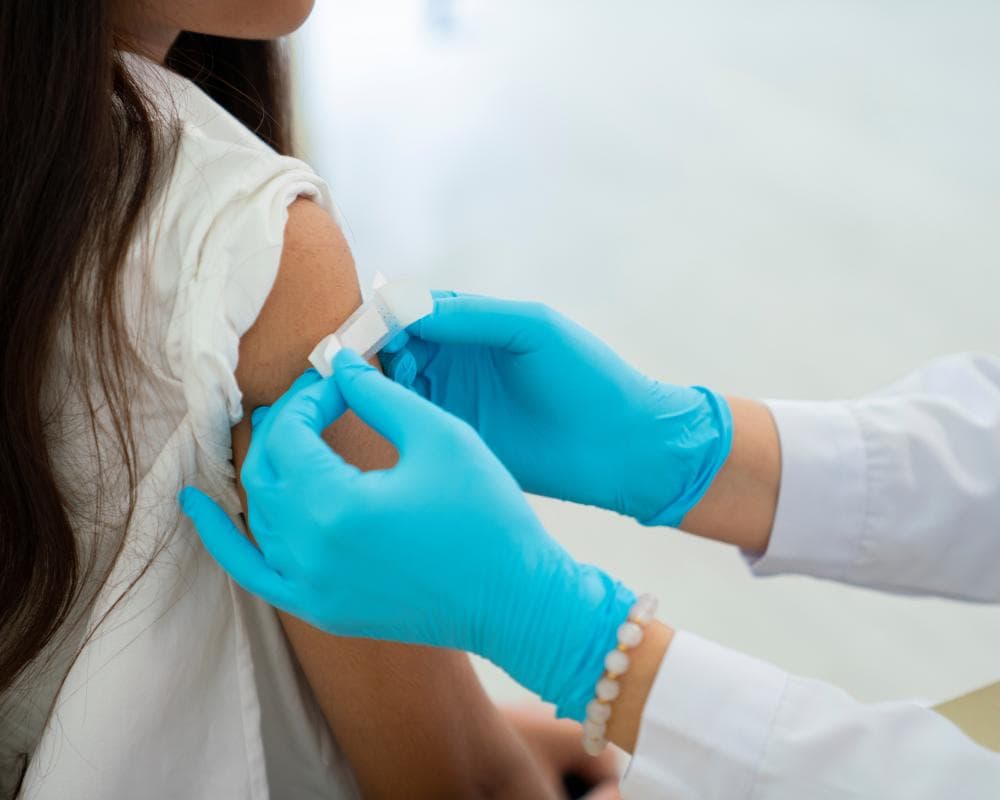Loading...
Please wait for a bit
Please wait for a bit

Click any word to translate
Original article by Harriet Barber in Buenos Aires
Argentina’s childhood and adolescent vaccination rates have collapsed to a historic lows according to a new analysis, prompting warnings that once-eliminated diseases may resurge.
The study of health ministry data by the Argentinian Paediatric Society (SAP) found that fewer than half of children aged five and six received several of their essential doses in 2024. All vaccines analysed were below the 95% level needed to reach herd immunity.
The data marks a dramatic reversal for a country long regarded as having one of Latin America’s most robust immunisation systems. While coverage has been slipping since 2015, public health specialists say the speed and scale of the drop in 2024 is without precedent – a collapse deepened by Javier Milei’s sweeping austerity programme, which has slashed the national health budget and strained the outreach networks that once underpinned Argentina’s vaccination successes.
“The decline is serious. Coverage continues to fall. It has never been this low,” said Dr Alejandra Gaiano, a paediatric infectious disease specialist at SAP. “The re-emergence of diseases that have been eliminated or controlled is the most serious issue and the greatest concern.”
Only 46% of five-year-olds received the MMR (measles, mumps and rubella) vaccine in 2024, compared with about 90% in the 2015-2019 period, SAP’s analysis found. The percentage of five-year-olds receiving the polio vaccine booster also fell from 88% to 47% in the same period, while the vaccine against whooping cough, diphtheria and tetanus dropped from 88% to just 46%.
“We are facing a scenario of collective immunological fragility. The current figures not only compromise individual immunity, but also put public health as a whole at risk,” Gaiano said.
SAP cautioned that changes in how some municipalities recorded immunisations in 2023 would have contributed in part to the decrease, but said this would not have had a “substantial impact” and that coverage levels remained “critically low”.
While low coverage was seen across all ages, experts warned that the situation was particularly alarming in children under 18 months. SAP estimated that coverage of the third dose of the pentavalent vaccine and the inactivated polio vaccine, administered at six months old, fell by an average of 10 points from pre-pandemic levels. This would mean more than 115,000 infants did not complete the schedules needed to protect them from diphtheria, hepatitis B, polio and whooping cough.
According to Elizabeth Bogdanowicz, an SAP infectious disease specialist, it is now common for less than 70% of children to have received their mandatory vaccines.
Access barriers were the primary driver of the decline, worsened by Argentina’s deepening economic crisis and sharp cuts in public spending under libertarian Milei. Since taking office in December 2023, Milei has slashed Argentina’s healthcare budget by 48% in real terms.
Gaiano said difficulties ranged from reduced clinic hours and fewer media campaigns, to the cutting back of outreach work that once underpinned Argentina’s historically strong immunisation system.
“At one time, outreach activities were carried out. Vaccinators would go door to door to vaccinate people, but these activities are decreasing. Activities used to be carried out in schools, but with the cutbacks this has become difficult,” Gaiano said. Parents struggling to pay for travel or to get time off work have also played a role, she added.
This strain on services also coincides with a post-pandemic rise in vaccine mistrust. Gaiano said Argentina previously had “almost no anti-vaccine groups” but that the pandemic “generated some mistrust of the Covid vaccine” which had “spread to other vaccines”.
Experts warned that the low coverage could lead to the re-emergence of eliminated diseases such as hepatitis A, whooping cough, measles and polio.
Argentina has already reported high cases of hepatitis A this year and has seen an uptick in measles. It is currently battling a whooping cough outbreak – cases are three times higher in 2025 than the year previous, while five children have died, SAP said.
The Argentina ministry of health was approached for comment.